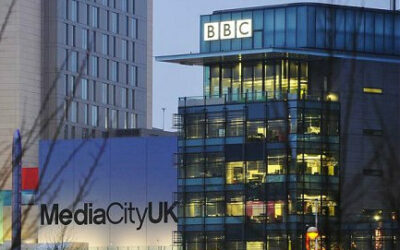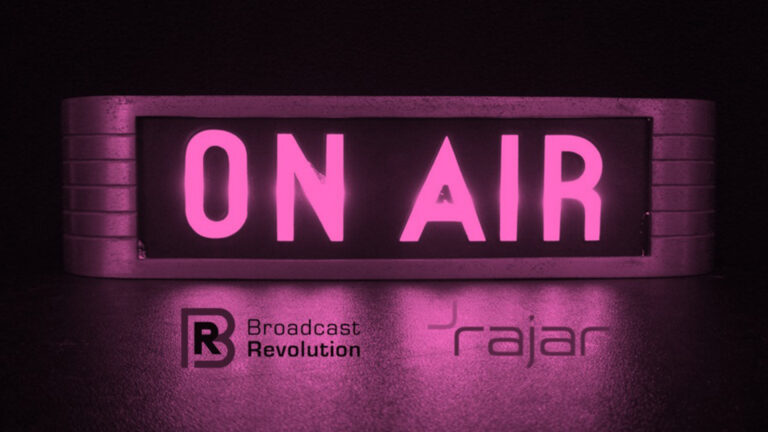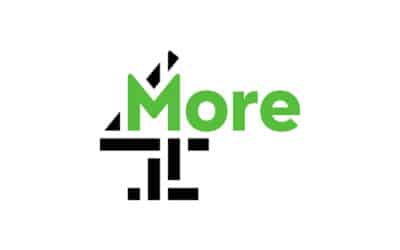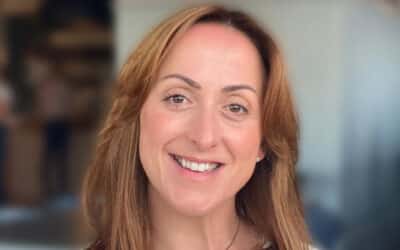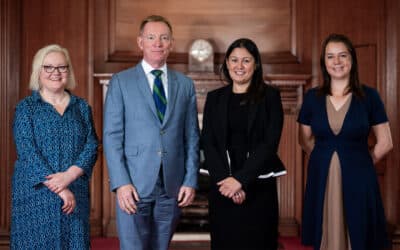This morning, the latest RAJAR figures have been released, showing the performance of radio stations up and down the country. Josh Wheeler, Head of North & Regions at Manchester-based broadcast specialist Broadcast Revolution analyses the results.
Welcome to RAJAR day – which for us in the world of broadcast is like a quarterly birthday. We get to see which stations are flying high – which helps to inform our targeting on behalf of brands.
For the stations themselves, it can be a bit nerve-wracking. It shows how their outlets and shows have been performing, which could lead to them implementing drastic change.
The figures measure BBC and licensed commercial radio outlets across the country to highlight which stations are performing well with audiences.
RAJAR Ltd (otherwise known as Radio Joint Audience Research) is owned by the BBC and RadioCentre (the trade body which looks after commercial radio stations in the UK).
The figures are the most accurate way of measuring the reach of radio audience penetration – and therefore incredibly significant.
What do the figures show?
The picture this quarter (16th September 2019 – 15th December 2019) looks decent. BBC outlets appear to have made gains across the board, but networked stations have been hit.
It means that radio in the North is well and truly flourishing.
If we take a look at the figures on a national level, before digging into the region, then we can see that 48.1 million adults (those aged 15+) tuned in each week throughout Q4 2019. This is a slight dip from Q3 – but the period saw a challenging period for media with the General Election taking place where the usual Christmas build would normally land.
The dip is only small though – around 87% of adults listened each week. The strength of radio means groups can continue to invest and develop the content they put out.
On average, here in the North, we are listening to almost 20.3 hours of live radio per week. 59% of us tune in at home, 25% in the car and 16% at work. Interestingly, the figure for car listenership has increased since Q2.
The growth of digital platforms remains solid – with ‘digital’ now having a market share of all listening of around 58%.
The usage of home assistants has continued to grow to benefit the radio sector. 94% of us are using our smart speakers to listen to audio content at home. It is an area to keep an eye on as smart speakers start to evolve their technology to include visual aspects too (e.g. the Amazon Show).
Manchester
The big winners in the area are BBC Radio Manchester and Radio X. BBC Radio Manchester has been boosted by 42,000 while Radio X has picked up an additional 22,000 listeners during the quarter. The BBC Outlet is seeing a period of continued growth as it also grew in Q3 2019.
Mike Sweeney, host of the mid-morning show, made headlines during the quarter. He, in a show which was tackle the rise of knife crime in Manchester, made the admission that he carried a knife to protect himself in the 1960s. The show demonstrated the benefits of local radio as it went on to talk to a woman who talked openly about the emotional trauma she has faced since being threatened with a knife in the area.
Radio – more than any medium – has the ability to tackle tricky subjects from an incredibly moving and emotive stance.
This is now the second full report for the Heart stations since they networked the breakfast show (coming from London with Amanda Holden and Jamie Theakston). During Q32019 they added 33,000 – but in the last quarter, they have lost 46,000.
Capital Manchester has also seen a drop – of 56,000 – taking them to 668,000 during the period after it networked its Breakfast Show with Roman Kemp.
There is a constant debate about whether or not ‘local’ radio should come from the local area. In the past the BBC has wrestled with this – and eventually settled on local content.
However, Hits Radio Manchester has also seen a dip to 264,000. The national brand of Hits Radio has also seen a slight dip to 5,878,000. Fleur East’s Rap Roulette (every Friday on the Breakfast Show) is building in popularity across social media – her recent take on Brexit went viral and saw her performing on BBC One’s The One Show.
Leeds/York/Yorkshire
BBC Radio York has seen steady growth during the quarter – adding 22,000 listeners – taking them to 80,000.
Last quarter Heart Yorkshire was boosted by an additional 30,000 listeners – but saw 35,000 tune off this quarter. They are currently reaching 421,000.
Capital Yorkshire saw a continued downward trend losing some 65,000 listeners during the quarter. In Q32019, Capital Yorkshire lost a loss of 31,000.
BBC Radio Leeds dipped to 168,000 from 174,000. BBC Leeds undertook and interesting trial during this period – they teamed up with BBC Radio 1Xtra to create a pop-up station in Bradford for 35 hours. It aimed to celebrate local talent and build younger audiences. In the coming months it will be interesting to see how the Beebs ‘youth’ channels can help support the BBC Local Radio Network.
Liverpool
BBC Radio Merseyside saw some strong wins during the quarter – adding 35,000 listeners – taking them to 257,000.
Commercial radio in Liverpool seems to have suffered slightly in Merseyside with both Radio City and Capital losing listeners. Radio City dropped 29,000 to 285,000 and Capital lost 32,000 to 190,000.
This is the first full quarter since Gemma Atkinson’s Drivetime show was announced – which saw the departure of Radio City legend, Scott Hughes.
The changes brought in mean that 20 out of 24 hours on the station on weekdays will be networked shows rather than being produced solely for a local audience. The exception on Radio City is the breakfast show, featuring Leanne Campbell and Dave Kelly.
Newcastle
The key BBC stations in the area both saw strong growth during the quarter – BBC Radio Newcastle added 13,000 taking them to 244,000 and BBC Radio Tees added 14,000 taking them to 115,000.
Metro Radio stayed strong for the third consecutive quarter running – only dropping 1,000 listeners during the period (284,000).
So what does this all mean?
The picture across the North is looking buoyant. BBC outlets across the board have benefited from the quarter – which is often a tricky one to deliver within.
It could be surmised that the General Election has benefited some of the BBC outlets – seeing us tune in for major interviews and key moments. Commercial Radio, as a rule of thumb, has a slightly younger audience and so its content may have been less Election focussed which may have seen people move around to stay informed.
The Heart Breakfast show removed the ‘local’ aspect (chiefly the presenters) with the content coming from London presented by Amanda Holden and Jamie Theakston during this period, and it seems to have been challenged with outlets making losses. However, during Q32019 they did see growth and so it may be too early to define precisely what is happening within listener mindset.
However, Capital continued to see losses during this quarter in the region. Manchester, Yorkshire and Merseyside all saw dips – with Capital NE making a small gain of 2,000.
Radio City – which is now measuring its networked elements – has seen another drop.
Could it be that we yearn for local output on local stations? The local aspect seems to biting.
BBC Cuts
You will almost certainly have seen the news that the BBC intends to meet its savings target of £80M by 2022. As a result, it is expected that around 450 jobs will be cut from BBC News during the period.
It has been revealed that outlets which will be hit include BBC Radio 5 Live (broadcast from Manchester), Newsnight, World Service and the Victoria Derbyshire show.
The changes will see BBC News move towards a more ‘planned’ view with stories rolled out across a greater number of programmes and outlets within the network. It will, however, mean a reduction in the number of stories covered.
Baroness Nicky Morgan yesterday announced that the Government is set to launch a consultation on whether or not failure to pay for the TV License should be decriminalised. The BBC said in a 2015 review that the current system was the fairest and claims decriminalisation would cost it £200m a year – meaning further savings would be needed.



